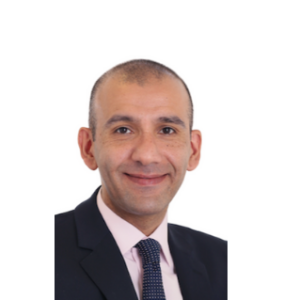Unfortunately, oral complications are a common side-effect of cancer treatment. Virtually all patients receiving radiation therapy for head and neck cancers will encounter such issues, while the prevalence in patients undergoing chemotherapy for lesions at any site is around 40%. Conversely, pre-existing or untreated oral disease can affect cancer treatment. While some complications resolve when treatment ends, others may persist for years. Oral complications can be very debilitating and may have a serious effect on a patient’s quality of life, and their overall health. In some cases, the effects are so severe that patients are only able to tolerate lower doses of therapy, or treatments have to be postponed or discontinued completely. However, appropriate dental care before, during and after cancer treatment can help to prevent and reduce oral complications. In this article Mr Zaid Sadiq, Consultant Oral and Maxillofacial Surgeon and expert witness explores the prevention and management of oral complications of cancer treatment.
There are several reasons for the high level of oral complications associated with cancer treatment. These therapies target the rapidly proliferating cells that are typical of most cancers. However, they also affect fast-growing normal cells, such as those found in the lining of the mouth. If oral tissues cannot make new cells, injuries cannot be repaired. Furthermore, chemotherapy frequently damages the function of the bone marrow and can suppress the formation of white blood cells, which are used by the body to fight infections, as well as red blood cells and platelets, responsible for blood clotting. In addition, radiation therapy may directly damage oral tissues, salivary glands or bone. Finally, anticancer treatments alter the balance of bacteria in the mouth, possibly resulting in tooth decay, sores and infections.
One of the commonest issues seen after cancer treatment is oral mucositis, a painful inflammation of the mucous membranes in the mouth. The risk of infections, which may be bacterial, fungal or viral, is also increased. Salivary gland dysfunction can lead to dryness of the mouth, due to changes in the quantity or quality of saliva produced. Not only does this increase the risk of infection and dental caries, it can also make speaking, chewing and swallowing difficult. In addition, many patients report unpleasant alterations to their taste perception of foods. Ultimately, problems with eating caused by mucositis, dry mouth and loss of taste can lead to dehydration and malnutrition.
Furthermore, patients who are treated with chemotherapy can experience neurotoxicity. This manifests as severe pain that mimics a toothache, but for which no obvious source can be found. Oral bleeding is also common, due to the decrease in platelets and clotting factors associated with the reduction in bone marrow function. Problems particularly associated with radiotherapy include a lifelong risk of extreme dental decay if changes in salivary gland function persist. In bone exposed to high-dose radiation therapy damage to blood vessels may result in necrosis and a reduced ability to heal. This may have implications for future dental treatment, particularly as early-stage lesions can be asymptomatic for several months. Developing dentition is more susceptible to damage from cancer treatment, so young children who receive radiotherapy or high doses of chemotherapy are at an increased risk of alterations in tooth development and craniofacial growth.
Good dental care is vital to minimise the possibility and impact of oral complications. Before cancer treatment commences, the patient should receive a thorough dental examination, including radiographs, to identify any existing problems, such as infections, fractured teeth or fillings, or periodontal disease. If left untreated, these may increase the possibility of complications arising during cancer therapy. The pre-treatment examination also provides a baseline against which any subsequent changes can be compared. Any required tooth extractions or oral surgery should take place at least two weeks before cancer therapy begins, to allow sufficient time for full healing. Patient education is also an important part of pre-treatment dental care and should include a discussion of the potential oral complications the patient may encounter. Moreover, patients need to understand that good oral care during their treatment will not only lower the risk of complications but increase the chances of successfully completing their course of therapy.
Regular monitoring of oral health throughout the treatment period is vital, so that any complications can be detected and treated as soon as possible. Any remedial work deemed necessary should be scheduled to avoid periods when the patient is undergoing active treatment. Additionally, the patient’s platelet count, clotting factors and neutrophil count should be determined, as these need to be at a suitable level to maximise rapid healing.
Once cancer therapy has been concluded, the patient must receive regular dental examinations, particularly for the first six months. After this time, the schedule of check-ups can be tailored to the patient’s needs, but it is important to remember that some oral complications can persist, or manifest, for some time after radiation therapy has finished and this may influence the timing of examinations. Children should be closely monitored for developmental issues affecting the teeth and craniofacial area. In all patients, oral mucosal tissues need to be carefully examined for the recurrence of head and neck tumours.
Oral complications are common after cancer therapy and can be a distressing and debilitating experience for patients. However, good dental care before, during and after treatment can reduce the risk of these issues occurring. Patient education on the need for good oral care during treatment is also vital.
Further reading:
https://www.cancer.gov/about-cancer/treatment/side-effects/mouth-throat/oral-complications-pdq [Accessed 12 August 2020]
Poulopoulos A, Papadopoulos P, Andreadis D. Chemotherapy: oral side effects and dental interventions. A review of the literature. Stomatological Dis Sci 2017;1:35-49.

